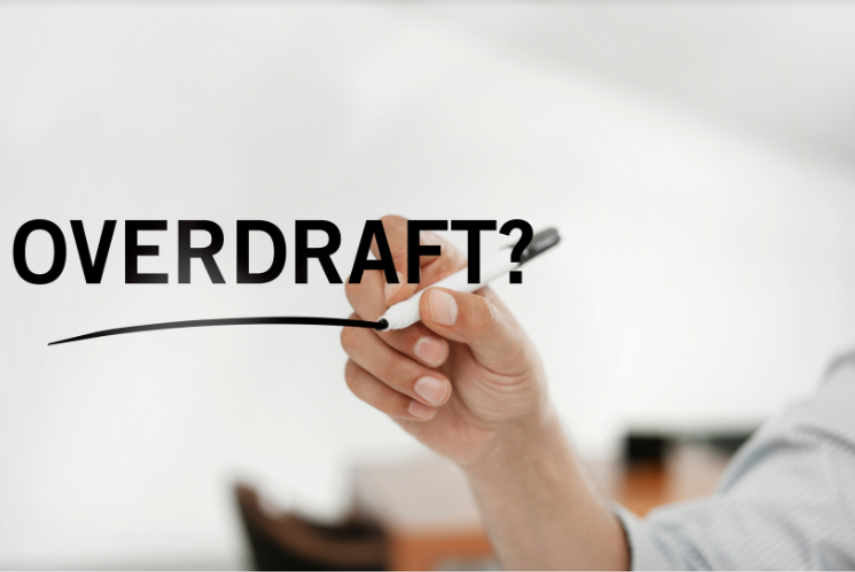
What is an Overdraft?
A transaction that lowers the balance in your bank account below zero, resulting in an overdraft. Some banks may charge a fee for this, giving you overdraft protection. If you don’t have this , you’ll pay a non-sufficient funds fee.
How does overdraft work?
An overdraft occurs when the balance in your checking account falls below zero dollars, indicating that you attempted to spend more money than you have. This may occur when you withdraw cash from an ATM, use your debit card to make a purchase, write a check, conduct a bank transfer, or make a pre-authorized payment on a bill.
There are two conceivable outcomes in this scenario. In the event that you have overdraft protection, your account will show a negative balance, such as -$25, in return you owe the bank. If you do not have overdraft protection, your bank will charge you a non-sufficient funds fee due to insufficient funds in the account and your purchase will be declined.
Overdraft fees vs NSF fees

When you attempt to make a payment that is greater than the current balance of your bank account, you will be charged one of these fees. Which one you’ll face is determined by whether or not you have overdraft protection.
You’ll probably be charged an NSF fee, which is normally between $40 and $50, if you don’t have overdraft protection. A one-time fee known as an NSF will be assessed each time you attempt to make a payment that is greater in value than your outstanding amount. If your insufficient balance results in you paying a bill after its due date due to your NSF fee, you can also be charged a late fee.
If there is overdraft protection on your account, you will be spared the high NSF fees. You will have to pay an overdraft fee in addition to overdraft interest. Depending on your bank, the fee amount will vary, but generally speaking, there is a monthly price for the protection and/or a fee for overdraft, with interest on the amount you have overdrawn.
How overdraft protection works
When you have overdraft protection added to your bank account, you can pay for a transaction even if there isn’t enough money in your account to cover the amount. You can avoid paying late penalties and NSF fees by doing this.
There are typically two kinds of overdraft protection:
- Basic overdraft protection. The financial institution basically lends you the money you need to complete the transaction, up to a specific amount. You will have to make a deposit of enough money to make your balance positive, or else your account will display a negative balance and you will be charged interest on the amount that is overdrawn. The interest rate is roughly 19-22%, which is comparable to what you may pay on a credit card.
- Connecting your bank account with a different financial service. This might be a credit line, an active bank account, or even a credit card. This kind of overdraft protection takes money from another source when your bank account doesn’t have sufficient funds for your transaction.
These two overdraft protection methods both have costs. Regardless of whether you utilize your overdraft protection or not, you can incur a monthly cost. As an alternative, each time you need overdraft protection, you can be charged a pay-per-use cost. Depending on the financial institution, these charges might range from $5 to $10 per month or per every overdraft transaction. Read the small print on your account to be aware of any possible overdraft protection fees.
Conclusion

Even though overdraft protection fees may appear minor in comparison to more expensive NSF fees, they eventually mount up. You should constantly be aware of the amount of money in your bank account before making any transactions. Keep a “safety cushion” in your account as a precaution to assist you steer clear of potential overdraft situations.
If you have incurred debt that gives you worry and anxiety, you can speak with us at EmpireOne Credit. We have trained debt experts that are ready to listen to you and offer solutions to your overwhelming debt. We can help you with debt solution options such as credit counselling, debt consolidation program, consumer proposal, and personal bankruptcy. Book a free consultation with us today.





